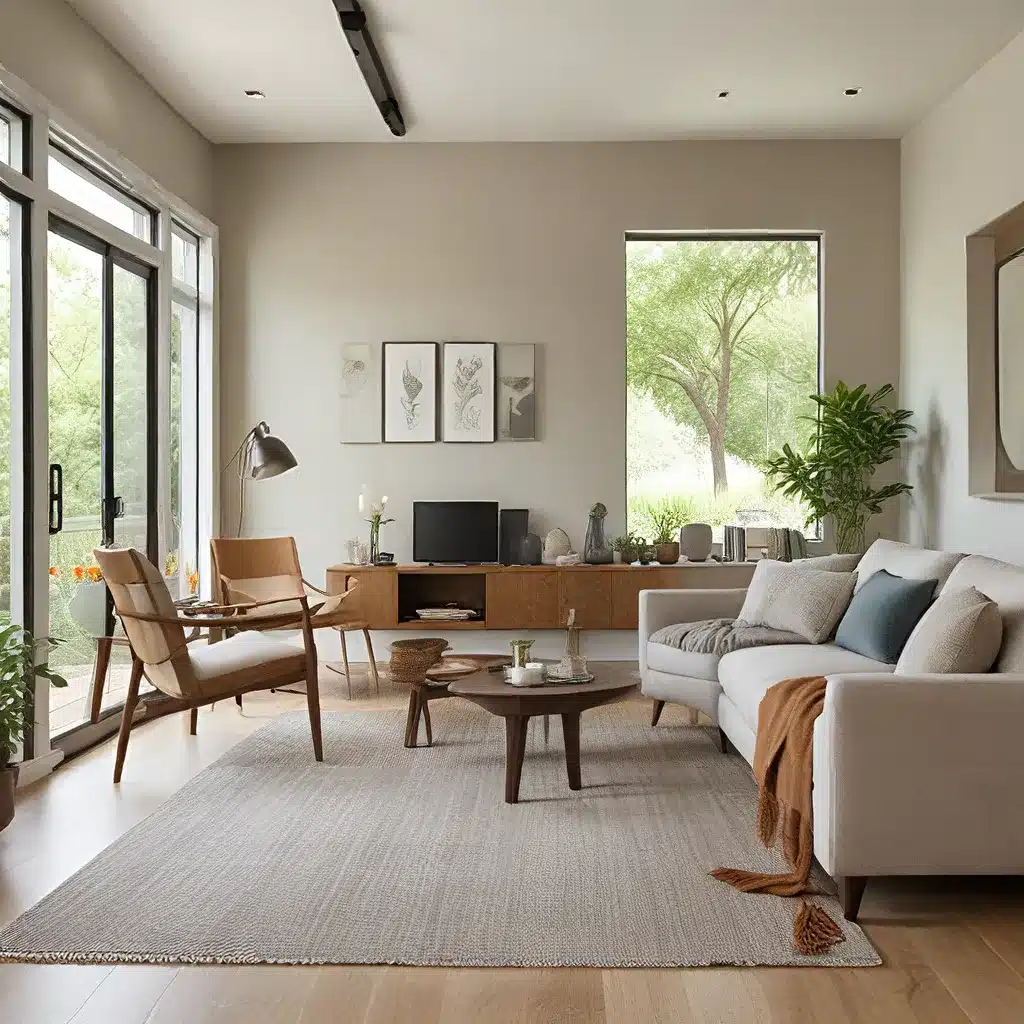
In today’s fast-paced world, our homes have become more than just a place to live – they’re a sanctuary, a refuge from the stresses of everyday life. As the wellness movement continues to gain momentum, savvy homeowners and design enthusiasts are recognizing the profound impact that our living spaces can have on our physical and mental well-being.
Bringing Nature Indoors: The Power of Biophilic Design
One of the most impactful ways to cultivate a wellness-focused home is through the principles of biophilic design. Rooted in the innate human need to connect with nature, biophilic design aims to seamlessly integrate natural elements into the built environment. By surrounding ourselves with greenery, natural textures, and soothing natural light, we can tap into the proven benefits of exposure to the great outdoors – from improved air quality and stress reduction to enhanced cognitive function and overall mood.
Incorporating indoor plants is an easy and affordable way to harness the power of biophilic design. Whether it’s a lush, trailing philodendron in the living room, a low-maintenance snake plant in the bathroom, or a fragrant herb garden in the kitchen, the presence of greenery can have a transformative effect on the overall ambiance of a space. Beyond their visual appeal, plants also actively purify the air, regulating humidity and filtering out harmful volatile organic compounds (VOCs).
For those seeking a more immersive biophilic experience, the integration of natural materials and textures can be equally impactful. The soothing tactile sensation of smooth wood or the cozy embrace of chunky knit throws can evoke a sense of connection to the outdoors, even in the most urban of settings. Incorporating natural lighting through thoughtful window placement and the strategic use of reflective surfaces can also have a profound impact on our emotional and physiological responses.
The Science of Sensory Design
Wellness-focused design goes beyond the visual realm, tapping into the power of our other senses to create truly holistic living environments. Scent, for instance, is a powerful tool in the designer’s arsenal, with the ability to profoundly influence our mood, cognitive function, and overall well-being.
By strategically introducing essential oil diffusers or carefully selected natural fragrances, homeowners can harness the therapeutic properties of certain aromas. Calming lavender can aid in relaxation, while invigorating peppermint can help boost energy and focus. Understanding the neurological foundations of how our brains respond to different scents allows designers to curate sensory experiences that cater to the unique needs and preferences of each individual.
The importance of sound in shaping our emotional responses to a space should not be overlooked either. Integrating soothing nature sounds through discreet speakers or water features can have a profound impact on our sense of tranquility and mental clarity. Conversely, minimizing disruptive noise pollution and creating dedicated “zen” spaces for relaxation and mindfulness can be equally transformative.
Personalized Spaces: Designing for Your Unique Needs
While general design principles and wellness-focused trends can serve as a helpful foundation, the true magic happens when homeowners and designers collaborate to create personalized living spaces that cater to the individual’s unique needs and aspirations.
Understanding the homeowner’s lifestyle, routines, and personal preferences is crucial in this process. A wellness-focused home for a busy urban professional might prioritize ergonomic furniture and strategic lighting to promote productivity and focus, while a family-oriented home might emphasize flexible, multi-purpose spaces and durable, child-friendly materials.
Incorporating personal touches and sentimental items can also have a profound impact on our sense of well-being and connection to our living environment. Whether it’s displaying treasured family photographs, incorporating handcrafted décor, or simply arranging a vase of freshly-cut flowers, these elements can infuse a space with a warm, comforting energy that nourishes the soul.
Elevating the Everyday: Luxury Design for Wellness
As the demand for wellness-focused design continues to rise, homeowners are increasingly seeking out luxurious, high-end solutions that seamlessly integrate form and function. From state-of-the-art air purification systems and custom lighting solutions to spa-inspired bathroom retreats and curated sensory experiences, the possibilities for elevating everyday living are endless.
Working with a professional interior designer can be a game-changer in this pursuit, as they possess the expertise and industry connections to access the latest innovations in wellness-centric design. These experts can help homeowners navigate the myriad of options, identify the most impactful solutions for their specific needs, and ensure a cohesive, visually stunning result that truly reflects their personal style and values.
Creating a Sanctuary: Holistic Design for the Modern Home
As we continue to navigate the complexities of modern life, the importance of our living spaces in supporting our overall well-being has never been more apparent. By embracing the principles of wellness-focused design, homeowners and design enthusiasts can create sanctuaries that nourish the mind, body, and soul – oases of tranquility and inspiration amid the hustle and bustle of everyday life.
Whether it’s through the integration of natural elements, the strategic use of sensory cues, or the personalization of spaces to suit individual needs, the power of holistic interior design lies in its ability to enhance our quality of life, one thoughtful detail at a time. By investing in our homes as true sanctuaries of wellness, we can cultivate a deeper sense of connection, balance, and joy – a lasting legacy that extends far beyond the walls of our living spaces.
To explore how Urban Grace Interiors can help you transform your home into a wellness-focused oasis, visit our website or schedule a consultation with our team of design experts today.

